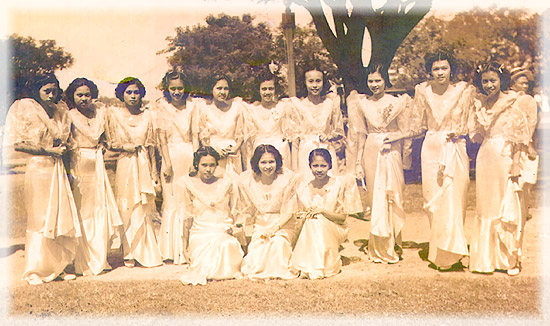The University
Centro Escolar University houses 12 buildings that are used in catering to the educational needs to an average of 20,000 students per year. Considered as one of the most stable institution in the country, the university has pursued academic excellence in its course offerings by continuously raising quality standards, upgrading facilities, updating curricula, and developing a highly professional and dynamic teaching force and university staff.
All of the school programs have been accredited Levels 2 and 3 by the Federation of Accrediting Agencies of the Philippines (FAAP). These accreditations certify that these college programs have attained academic excellence in higher education specifically:
reasonable high standard of instruction as manifested by the quality of its teachers,
highly visible community extension programs,
highly visible research tradition,
strong staff development tradition,
highly credible performance of graduates in licensure exams over the last three years, and
existence of working consortia or linkages with other schools/agencies.
School History
Centro Escolar University was established in June 3, 1907 by Dona Librada Avelino and Dona Carmen de Luna for the instruction and the training of the youth in all branches of the arts and sciences, offering classes in primary and secondary instruction as well as university and collegiate courses. With some benches, a single blackboard and a few books , the two philanthropists steadfastly nurtured a dream of establishing a nationalistic center of learning for Filipino women. The first college, that of Pharmacy, opened in 1921. The college of Liberal Arts, Education, and Dentistry followed one after the other. Three years later, the College of Optometry was established.

NUEVO EDIFICIO del
Centro Escolar de Senñoritas
(CURSO de 1916-1917) Manila I.F.
Centro Escolar University, 1928
Even during the years of World War II, CEU did not totally stop its operations, but stood its ground in quality education through a dedicated and committed faculty, braving the presence of the conquering forces within the school campus.
Beginning as the Centro Escolar de Senoritas, the school was granted university status by the Philippine government in 1932. It has then steadily grown as an institution under the leadership of known educators who have contributed much to the development of their respective professions. Other past presidents included the following: Dona Pilar Hidalgo Lim, a social work educator and civic leader; Don Dionisio C. Tiongco, another renowned scholar and educator; Dr. Lourdes T. Echauz; a philanthropist and a respected educator in the field of Pharmacy. The current President, Dr. Rosita L. Navarro, is a career educator who has received major recognitions in the field of teaching, notably the "Outstanding Professional Teacher" awarded for the year 2000 by the Professional Regulation Commission, and The "Outstanding Professional in the Field of Teaching" awarded by The Philippine Federation of Professional Association.
With 36 academic programs, and being the first non-sectarian university to offer graduate studies leading to the degrees Doctor of Philosophy and Doctor of Education, Centro Escolar has gone far beyond its founders' original vision.
Mission and Vision
VISION
CEU is an internationally recognized higher education institution.
MISSION
CEU, a caring academic community founded on the philosophy of "Ciencia y Virtud," provides quality education that ensures the total development of its members.
Objectives:
to develop proficient professionals with wholesome values and attitude;
to conduct researches that improve the quality of life and service to the community; and
to participate in sustainable development programs in the context of nationalism and internationalism.
|